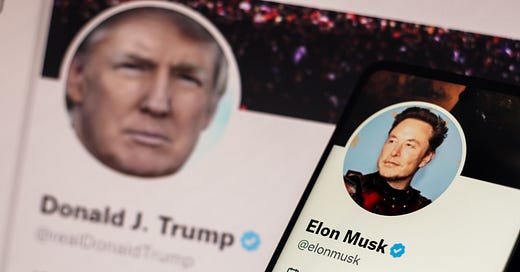In a world teetering on the brink of ecological disaster, Elon Musk’s recent comments on the climate crisis reveal a striking disconnect between scientific reality and the allure of technological optimism. During a live-streamed conversation with Donald Trump, Musk—a man whose influence stretches from Silicon Valley to the halls of global power—boldly asserted that we can "still have steak" while confronting the climate emergency. Such a claim, however comforting it may seem to those unwilling to change, is dangerously out of touch with the facts.
Musk has long positioned himself as a visionary leader in the fight against climate change, promising a future free from fossil fuels within the next 50 to 100 years. Yet, his reluctance to confront the meat industry’s role in this crisis suggests a troubling blind spot. By avoiding a full-throated condemnation of practices that are undeniably destructive, Musk’s message undermines the urgency of the climate challenge we face.
The scientific community is unequivocal: the meat industry is one of the leading drivers of global warming. Livestock production is responsible for a significant portion of greenhouse gas emissions, particularly methane, which is far more potent than carbon dioxide. Moreover, the environmental toll extends beyond emissions—deforestation, water depletion, and biodiversity loss are all directly linked to our insatiable appetite for meat. The Amazon rainforest, often referred to as the “lungs of the Earth,” is being razed to make way for cattle ranching, while the American Midwest is being drained to grow feed for livestock. These are not just isolated incidents; they are symptoms of a global crisis.
Musk’s timeline for achieving sustainability—a leisurely 50 to 100 years—stands in stark contrast to the urgent warnings issued by climate scientists. The truth is, we don’t have the luxury of time. The window for taking meaningful action is rapidly closing. Every year of delay brings us closer to irreversible climate tipping points, where the consequences will be catastrophic and global. Waiting to decarbonize or reduce meat consumption isn’t just irresponsible—it’s an existential gamble with the future of humanity.
The ethical dimensions of this issue are equally pressing. The climate crisis doesn’t affect us all equally; it disproportionately impacts the world’s most vulnerable communities. Continuing to consume meat at current levels isn’t just environmentally reckless—it’s a moral failing. Transitioning to plant-based diets isn’t merely a personal choice; it’s a necessary step towards a just and sustainable world. It’s a shift that acknowledges the interconnectedness of our food systems, the environment, and social justice.
Of course, there are those who argue that reducing meat consumption is an unnecessary sacrifice, a luxury that only the privileged can afford. But this perspective ignores the growing body of evidence that shows plant-based diets are not only viable but essential for the future of our planet. Technological advancements have made it easier than ever to adopt a more sustainable diet, with a plethora of plant-based alternatives now available. The notion that we can’t survive without steak is not just outdated—it’s a dangerous myth that serves to delay the changes we so desperately need.
Elon Musk’s influence is vast, but with great power comes great responsibility. His statements on climate change and meat consumption demand scrutiny, not blind acceptance. While technology will undoubtedly play a crucial role in addressing the climate crisis, it cannot be the only solution. We must recognize that individual actions, such as dietary choices, matter deeply. By aligning our daily habits with the imperatives of science and ethics, we can each contribute to a sustainable future—one that doesn’t trade the health of our planet for the fleeting satisfaction of a steak.
In the end, what we choose to eat is more than just a personal decision; it’s a statement about the world we want to live in. As we confront the challenges of climate change, let us be guided not by the comforting words of billionaires, but by the stark realities of science and the moral duty we owe to future generations. The time for complacency is over. The time for action is now!
Get my new booklet ‘‘25 Vegan Myths Debunked!’’
This concise guide is invaluable for anyone curious about veganism, offering evidence-based insights and practical guidance to navigate vegan living confidently. All proceeds benefit the promotion of animal rights worldwide!
Visit Our Amazon Store!
Notice: As an Amazon Associate, we earn a commission from qualifying purchases that help promote animal rights worldwide!
General Resources
Books:
Dominion: The Power of Animals in Nature and in Our Imagination by Matthew Scully
Animal Liberation by Peter Singer
Eating Animals by Jonathan Safran Foer
A Billion Hungry Mouths: Feeding the World Without Consuming the Planet by Colin Tudge
Websites and organizations:
Documentaries:
Articles:
"The Case for Animal Rights" by Tom Regan
‘‘Why We Love Dogs, Eat Pigs, and Wear Cows: An Introduction to Carnism’’ by Melanie Joy
‘‘Animal Rights: The Abolitionist Approach’’ by Gary L. Francione
‘‘Fellow Creatures: Our Obligations to the Other Animals’’ by Christine Korsgaard
Seeds of Compassion: Finding Jesus Christ in a Vegan World by Michael Corthell
Receive a single informative article daily at 12:01 AM by email. Explore my homepage with exciting vegan and plant-based news content and delightful and delicious recipes for additional updates. Stay connected to the vegan world and all it has to offer.
Visit The Vegan Project Global our Facebook page for more vegan outreach and education.
The information on this vegan/plant-based blog is for general informational purposes only. It is not intended as legal, medical, or professional advice. Readers should consult with appropriate professionals for specific advice tailored to their situation. The blog owner is not responsible for any reliance on the information herein.





